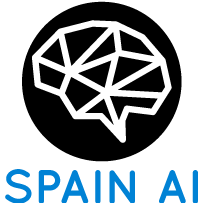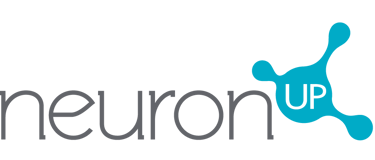
Madrid 2024
Revolucionando la Salud Juntos
Madrid, Spain (International Lab)
3rd October 2024
In-person & Online
Relive our latest event on YouTube!
Agenda
16:30 - 16:45
17:00 - 17:30
17:30 - 18:00
18:00 - 18:30
19:30 - 20:00
Practical Application of AI in the Hospital Environment (in Spanish)
Julio Jesús Sánchez García
Ready Surgeon One: The Future in Today's Operating Room (in Spanish)
Alicia Pose
18:30 - 19:00
19:00 - 19:30
BacteriaID Fighting Clostridiodes difficile Using AI (in Spanish)
Alejandro Guerrero López
Personalised Medicine Through AI (in Spanish)
María Postigo Camps (Spot Lab)
16:45 - 17:00
Get to know NeuronUP (in Spanish)
Jesús Cortés
Speakers and Talks
Get to Know NeuronUP (in Spanish)
NeuronUP is a leading platform in cognitive rehabilitation and stimulation. With a completely data-driven approach, NeuronUP has revolutionised the way healthcare professionals approach intervention in neurorehabilitation. Designed for professionals, NeuronUP has become a reference in more than 30 countries, with a consolidated presence in over 2,500 hospitals and clinics.
The platform is used by more than 4,500 professionals, who employ its innovative technology to personalise and improve the cognitive rehabilitation programmes of their users. This tool not only facilitates intervention but also optimises progress tracking, all based on data, allowing real-time adjustments and continuous improvements in treatments.
With the capacity to simultaneously manage more than 130,000 users, NeuronUP stands out for its scalability and efficiency. Each day, more than 125 new patients join the platform, consolidating its position as the number one in Spain and Latin America. This massive adoption is a testament to the trust the system has generated in the sector, thanks to its ability to transform data into effective and personalised intervention strategies.
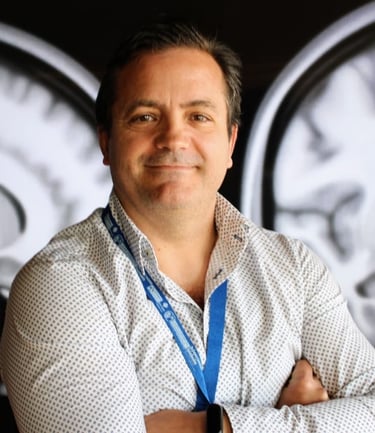

Jesús Cortes
Professor at Ikerbasque, Head of the Computational Neuroimaging Laboratory at the BioBizkaia Health Research Institute, and Head of Research at NeuronUP
With a PhD in Computational Physics, he has over 20 years of experience in research and data in Neuroscience and hospital environments. He has worked in 4 countries, trained more than 30 professionals, published 120 scientific articles, and taught at over 24 different universities.
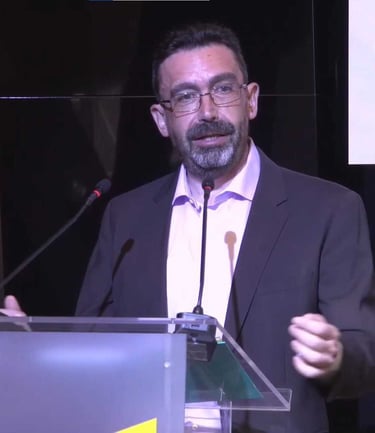

Julio Jesús Sánchez García (Digital Health Association)
Passionate and expert in the field of digital health
As a team leader at Telefónica, his main focus is to deliver innovative digital health solutions to large customers in the sector, such as pharmaceutical companies, insurers, healthcare providers and public health services.
As a member of the board of directors of the Digital Health Association and coordinator of the Digital Health working group of the Official College of Telecommunications Engineers, he is constantly updated on trends and developments in the sector and his commitment is to continue to be a benchmark in the digital transformation of health and make it accessible to all.
Practical Application of AI in the Hospital Environment (in Spanish)
Practical implementation of artificial intelligence in the hospital setting
After examining various proposals for digital health and artificial intelligence applications in the health sector, we will focus on a case study of AI use in a hospital emergency department and look at a demonstration of its application.
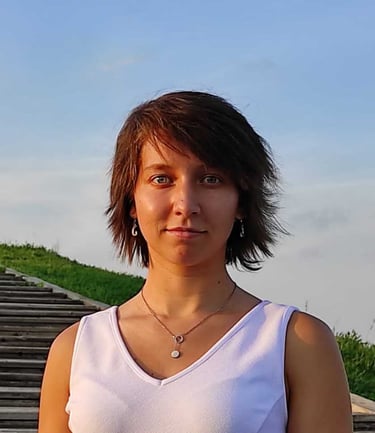

Alicia Pose Díez de la Lastra
PhD in Biomedical Science and Technology from the University Carlos III of Madrid (UC3M)
Working closely with several hospitals in the Community of Madrid, she has specialised in the combination of Augmented Reality and 3D Printing to solve real clinical problems.
In addition, Alicia is a lecturer in the Biomedical Engineering degree and the Master in Artificial Intelligence in Health at UC3M, as well as in the Master in Medical Physics at the Universidad Nacional de Educación a Distancia (UNED).
Her research has led her to win several national and international awards, and to travel around America, Asia, Africa and Europe, exploring new ways in which the technologies of the future can improve the medicine of the present.
Ready Surgeon One: The Future in Today's Operating Room (in Spanish)
Augmented reality (AR) improves every day many aspects of our daily lives, including the world of leisure, sport, marketing, industry... but how can we use this technology to improve health as well?
In this talk we will see how the Carlos III University of Madrid works closely with hospitals all over Spain to design personalised treatments for patients: AR in mobiles or glasses? Assistance in surgical planning or during the surgeries themselves? Do we work with voice commands or hand gestures? All options are valid and are being explored by the Bioengineering department. Come and discover the future in today's operating rooms.
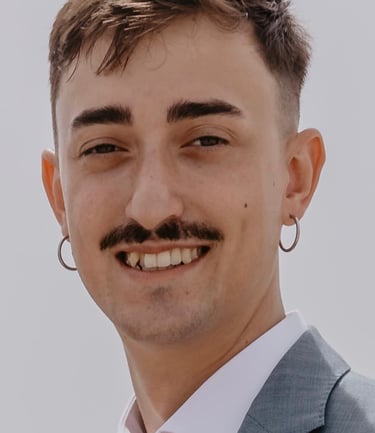

Alejandro Guerrero López
Postdoctoral researcher in the Signal Processing Applications Group at the UPM
Specialised in Machine Learning, his work focuses on developing probabilistic models applied to biomedical problems, such as microbiology, speech or neurology.
Dr. in Machine Learning for Personalised Medicine from the Carlos III University of Madrid, his research has been key in improving predictions of antibiotic resistance and detection of hypervirulent strains in clinical microbiology.
BacteriaID Fighting Clostridiodes difficile Using AI (in Spanish)
BacteriaID is a web application designed to allow any biologist or microbiologist from any hospital to upload their mass spectrometry (MALDI-TOF MS) and detect if their Clostridioides difficile samples correspond to European toxigenic ribotypes. Currently in closed beta, BacteriaID is the result of a collaboration with renowned institutions and represents a significant advance in microbiology, offering an accurate and accessible tool for the rapid detection of bacterial infections. In addition, I will explain the Bayesian and deterministic models that underpin its operation. For more information, please visit the website Bacteria.ID.
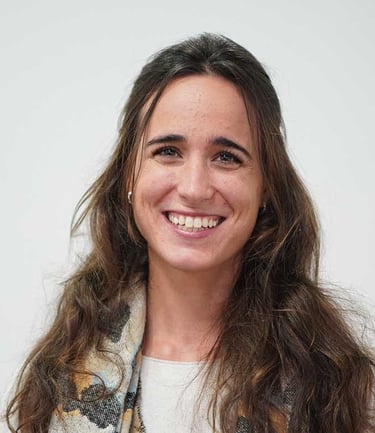

María Postigo Camps
Co-founder and COO of SpotLab
SpotLab is a healthcare artificial intelligence startup that has developed an AI-based platform for medical diagnostics, present in 10 countries and is backed by the European Commission.
A graduate in Biomedical Engineering from the Polytechnic University of Madrid, she began her career in the Biomedical Imaging Technologies Group at the UPM.
At SpotLab, Maria is in charge of clinical studies, medical regulation, investment and institutional relations. Maria believes in entrepreneurship as a vehicle to make an impact on society.
Personalised Medicine Through AI (in Spanish)
The session will be about AI applied to precision diagnostics and personalised medicine. How AI helps us to find information that we are able to see, and also information that we sense but do not see. We will talk about digital biomarkers, which give us new information to make more informed clinical decisions. Of current and real-world applications of AI. Ongoing clinical studies in which clinicians are developing and validating AI. Regulation of AI and medical devices. And the road ahead to create ‘reliable’ AI.
Sponsors



Partners


